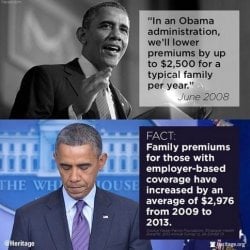Ah.
So someone is closed minded if they disagree with you. I'm a licensed agent, I've researched this topic extensively, have multiple certifications in health insurance, and continue to keep current on the latest changes. You aren't interested in any discussion, you just want to post opinions and lies with no substantiation nor evidence. I think I'll just move on.
All those qualifications and you tell your clients that higher premiums are unrelated to lower risk?
Amazing.
I'm not sure how you can claim to know what I tell my clients, but since you've made up so much other stuff I guess we'll just add this to the list.
If you believe what you posted here and tell your clients otherwise you are, at the very least, guilty of being disingenuous.


